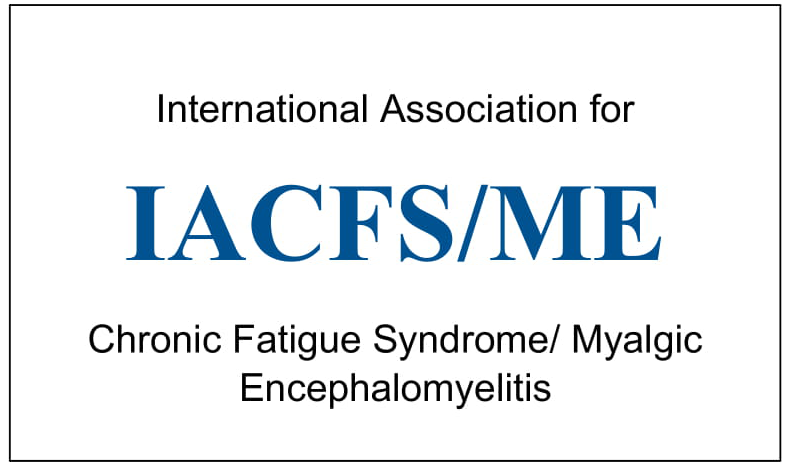Dolphin
Senior Member (Voting Rights)

SAVE THE DATE!
17th Medical and Scientific Conference
Nova Southeastern University, Davie Campus
Miami/ Fort Lauderdale, Florida, USA
October 22 - 25, 2025
Call for abstracts/ workshop proposals: Anticipated Early 2025
Mark your calendars to join us October 2025 for our International Medical and Conference to be held in Miami/Fort Lauderdale in Florida, USA. This event is co-sponsored by the Institute for Neuro-Immune Medicine at Nova Southeastern University.
We anticipate an exciting, informative program including:
- Research presentations focusing on new, unpublished data
- Workshops covering clinical and research topics
- Poster sessions
- Exciting lectures from our Plenary/ Keynote speakers
- Ample time to meet and network with your colleagues
We expect the meeting will run from approximately 9 AM to 5 PM, Wednesday to Friday and end at 3 PM on Saturday. A conference program will be posted on our website by summer 2025. There is an optional evening banquet on Friday night.
The conference will focus on the biomedical, public health, and behavioral aspects of ME/CFS and associated comorbidities. A portion of the meeting will also be devoted to infection-associated conditions like long COVID which have triggers, pathophysiologic mechanisms, and symptoms similar to ME/CFS.
Attendees at IACFS/ME conferences are primarily biomedical and behavioral professionals, including clinicians, researchers, public health experts, and educators. We especially encourage participation by professionals from outside the United States and group traditionally underrepresented in medicine/ science. People affected by ME/CFS and their supporters are also welcome to attend.
IACFS/ME Members received discounted registration fees: considering joining us today for this and other benefits! For a taste of our meetings, see our 2023 Conference information page, 2022 Conference Summaries/ information page and 2021 Conference Summaries.
Travel and Accommodation Information
Fort Lauderdale is located on the southeastern coast of Florida, 30 miles from Miami and right around the corner from its local beaches and boating canals. Multiple airports including Fort Lauderdale/ Hollywood International Airport, Miami International Airport and Palm Beach International Airport, service the area and the city is also accessible via car, rail, water taxi and ferry. The city and surrounding locales are popular and scenic destinations on Florida's spectacular Gold Coast and the Atlantic Ocean.
IACFS/ME has arranged discounted rates for conference attendees at the following 3 hotels: La Quinta Inn, Hampton Inn, and Hyatt Place. The hotels are a 10-15 minute drive/ ride to conference facilities, close to each other, and near restaurants/ shops. Free breakfast, Wi-Fi, and complimentary parking are available at each location. To obtain the discounted rate, the La Quinta can be booked using this link. The Hampton and Hyatt links will be made available in the near future.
Here is some basic information about the Institute for Neuro-Immune Medicine at Nova Southeastern University, the local area, Miami and Florida. Unique attractions in Florida include Walt Disney World, the Florida Keys, and Everglades National Park. Latin-American culture, restaurants, and music also flourish in the area.
Continuing Medical Education
Continuing Medical Education credits will be available for eligible program components. Stony Brook University in New York is accredited by the Accreditation Council for Continuing Medical Education to provide continuing medical education to physicians and will designate the number of AMA PRA Category 1 credit (s) TM awarded for physician participation.
Volunteer for the Conference
These activities are carried out online in the weeks to months before the conference. Contact us at iacfsmeorg@gmail.com if interested.
a. Help us peer-review abstracts and workshop proposals: This is an especially valuable learning experience for junior clinicians/ researchers, trainees, and students. Learning how reviewers choose and rate abstracts can increase the quality of your own work. Peer reviewers read abstracts ahead of time and then meet 2-3 times to discuss abstracts.
b. Help us plan/ implement the conference: Are there workshops, speakers, timely topics you would like to see at the conference? Are there networking or social events you think attendees would enjoy participating in? Every 4-6 weeks, a meeting is held to discuss conference activities.
Sponsorship
Every conference, generous individuals, non-profit groups, agencies, foundations, and businesses have helped us create a successful meeting. If you or your organization are interested in publicizing your support of ME/CFS clinical care and research to our community, please complete our Contact Us form or e-mail us at iacfsmeorg@gmail.com.
Livestreaming and Video Recording
Arrangements for livestreaming and/or video recording are currently being discussed. We will share more information in future announcements.
Look Out for Future Announcements and Updates!
If this e-mail did not arrive in your primary e-mail Inbox, please make adjustments to ensure it does in the future. We do not want you to miss any important updates.
Follow us on our LinkedIn page!
This email was sent on behalf of International Association for Chronic Fatigue Syndrome/ Myalgic Encephalomyelitis (IACFS/ME) located at ATTN: Dr. Fred Friedberg, IACFS/ME, P.O. Box 583, Stony Brook, NY 11790...If you have questions or comments concerning this email contact International Association for Chronic Fatigue Syndrome/ Myalgic Encephalomyelitis (IACFS/ME) at iacfsmeorg@gmail.com.



